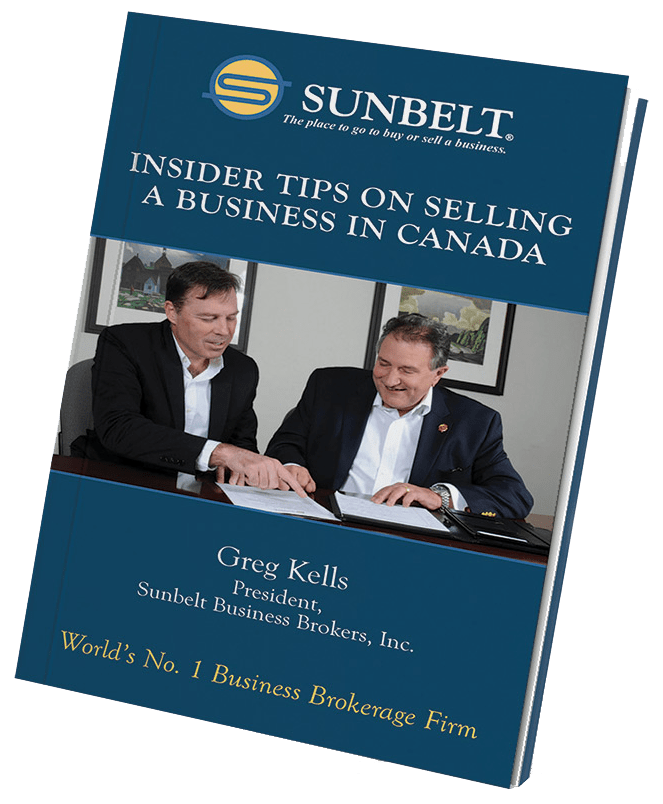 The retail industry has experienced significant growth over the years, with numerous store owners expanding their locations, offerings, and even moving sales online. It’s no surprise, then, that global retail sales are expected to amount to $33.9 trillion by 2026. While the forecast is positive, business owners might look at the next few years as a prime opportunity to sell.
The retail industry has experienced significant growth over the years, with numerous store owners expanding their locations, offerings, and even moving sales online. It’s no surprise, then, that global retail sales are expected to amount to $33.9 trillion by 2026. While the forecast is positive, business owners might look at the next few years as a prime opportunity to sell.
Whether you’ve been running your retail store for decades or are looking to pivot to selling another type of goods, understanding how to sell your retail business can involve plenty of research.
In your search, you’ll probably notice details like market size, location, and earnings. These can be empty indicators if you don’t work with the right business broker who understands all factors that impact your business.
In this post, we’ll explore some strategies that can help you achieve a successful sale and provide insights and guidance that can apply to your retail company, no matter if you run a clothing store, home goods outlet, or a convenience shop.
Table of Contents
- 8 Steps to Selling Your Retail Business
- How do You Value a Retail Business?
- How Can I Increase the Value of My Retail Store?
- What Decreases the Value of a Retail Business?
- What KPIs are Essential for Retail Businesses?
- Should I Sell to a Competitor?
- When is the Best Time to Sell a Retail Business?
- 3 Things to Avoid When Selling a Retail Store
- Use a Broker
8 Steps to Selling Your Retail Business
Getting ready to sell a retail business means plenty of moving pieces. At Sunbelt Canada, we recommend careful planning and preparation that starts with these eight steps:
Plan Your Exit
An exit plan is a necessity when you decide to sell. No matter the business, the more prepared you are to leave, the better shape it’ll be in. You should consider specifics and ask yourself questions like:
- Why am I selling?
- When would I like to have the business sold?
- What am I planning to do after the sale?
Pro Tip
Transitioning out of your retail business can be a challenge. So, the more work you do ahead of time to prepare all aspects, including your personal investment in the company, means a smoother sale can take place.
Value Your Retail Business
You’ll want to know what your retail store is valued at before putting it on the market, especially since the number could be increased by upgrading internally. Business valuations take into account more than the dollars and cents of it all. A solid valuation will consider assets, market trends, and financial performance. While it’s a good idea to have a general number in mind, you should work with a business broker who is adept at valuations to determine a fair price for your retail store.
Increase Your Store’s Value
Attracting buyers is key to ensuring your retail business sells for what it is worth. So, doing the work to increase your store’s value can make it more appealing and thus fetch the best price. We’ll go into more detail on this step below, but some ways to increase the value of your retail store include improving its financial performance, upgrading its equipment, and diversifying its revenue streams.
Prepare Your Financial Documents
Financials provide potential buyers with a comprehensive look at the overall performance of a business. Your broker will advise you to compile several documents, such as:
- Tax returns
- Profit and loss statements
- Balance sheets
Keeping this paperwork organized and readily accessible helps drive the sales process forward and shows potential buyers you are committed to transparency and the success of the sale.
Make Your Store Presentable
When it comes to retail, curb appeal isn’t everything. But it is a big thing. Take the time to create a welcoming atmosphere for customers and, by extension, potential buyers. Consider deep cleaning, including carpets, windows, display cases, clothing racks, and any other areas that make sense. In the back, organize inventory in a way that makes sense to everyone, not just the people who work there. Additionally, if your store is outdated, refreshing the decor can enhance its charm.
Market Your Retail Store for Sale
Marketing for retail and marketing the sale of a business are two distinctly different things. Fundamentally, the approach taken when selling a retail business should be done with discreetness and care. A business broker can help guarantee anonymity but also has access to a larger pool of potential buyers and resources compared to just promoting on online marketplaces or social media.
Finding a Buyer
When searching for a buyer, it’s about more than simply identifying who is interested in the business. Screening these individuals ensures that they are capable of running the company after your departure and have the financing to secure the purchase. A business broker can be invaluable in this area and can help ensure due diligence is followed, and negotiation of terms is fair and in your best interest.
Consider Your Assets
Assets can come in all shapes and sizes. When you go to sell your retail business, ensure you consider them all. Tangible assets include things like inventory and equipment. For a retail business, that might be:
- Company vehicles
- Display items, like shelving, racks, and cases
- Cash registers
- Sales counters
- Cleaning supplies
- Unsold inventory
You can also include details of vendor relationships, your overall brand, customer loyalty, and social media accounts as assets in the sale of your retail business.
 How do You Value a Retail Business?
How do You Value a Retail Business?
Depending on the size and scope, you might be wondering how to value your retail business and consider a few different ways to do so. Most consider the earnings before interest, taxes, depreciation and amortization (EBITDA) a fair place to start, and it is for higher-profile businesses that see significant profits. However, if you own a small or medium-sized retail store, it’s worth looking at a few different metrics to determine its value.
Seller’s discretionary earnings (SDE) can level the playing field and compare your company’s earnings to that of other companies and the industry in general. It adds earnings and expenses together to determine the reasonable value of the business as a whole. The formula looks like this:
(Pre-tax, pre-interest earnings) + (vehicles, travel, and other personal expenses listed as business expenses) = SDE.
Some other important metrics to consider when valuing a retail business include:
- Average Order Value (AOV): The average dollar amount customers spend when buying in-store.
- Conversion Rate: The ratio of sales to total foot traffic.
- Customer Retention Rate: The percentage of your customers that return to buy again.
- Gross Margin: The difference between cost of goods sold plus shipping expenses and average sales price
How Can I Increase the Value of My Retail Store?
Before you make the decision to sell, you might consider increasing the value of your retail store in a few different ways. This can help potential buyers more readily see the business with them at the helm, plus it can also fetch a higher valuation and selling price.
Optimize Inventory
Having the right processes in place shows buyers that there is minimal work that needs to be done behind the scenes. Invest in reviewing your stock counts regularly to identify top-performing items, and create a process for underperforming ones to enable swift replacement. This can be achieved through the use of analytics, which may require the adoption of new software tools. You can also consider connecting with new vendors as a strategic approach to ensuring the smooth functioning of your operations.
Upgrade Your Technology
To stay competitive in the retail space, keeping up-to-date with technology has become a crucial component. You might already have a few foundational areas in place, like a point of sale (POS) system, but consider if this is tied to your inventory for easy categorization and organization. Additionally, have you considered expanding your reach with shipping? Logistics is an important factor in today’s retail sales, with buyers expecting a modern and smooth process.
Finally, security should always be top of mind for those dealing in moderately priced goods. Consider installing cameras or implementing security gates or tags on items to ensure they cannot easily be stolen.
Build an E-commerce Presence
Shopping online is not going anywhere anytime soon. If you don’t have an online store set up, it might be time to invest in one. These websites can boost sales and be relatively straightforward to operate. An e-commerce presence will allow you to diversify your income streams and also reach new customers. This can be especially helpful in maintaining a competitive edge over other retail businesses.
Increase Digital Marketing Efforts
Whether you operate in-person, online, or a bit of both, digital marketing can be a great tool to use to interest new shoppers and keep existing ones coming back. These efforts might look a little different from business to business, but some of the main areas you can consider investing in are:
- Search Engine Optimization (SEO)
- Social media posting
- Paid advertising
- Email promotions
Digital marketing continues to bring returns to retail businesses and can demonstrate active value when you are trying to sell yours.
What Decreases the Value of a Retail Business?
Making a few incremental changes can help you fetch top dollar for your retail business. However, despite your efforts in some areas, other aspects can potentially bring the value down. Here are some things to consider:
Declining Sales
Whether your inventory is outdated or you’re competing with a recent retail hotshot in the area, declining sales are a red flag. To turn this around, take the time to analyze the reasons behind the decline. From there, you should be able to develop a plan to reverse the trend before selling the business.
Outdated Equipment
A lot of business owners continue to operate with outdated equipment because it still serves its purpose, it just might not be as efficient or easy to use as new technology or tools. However, buyers are interested in equipment being up-to-date. As a result, it’s worth investing in new equipment before the sale.
Excessive Debt
Debt can happen for all kinds of reasons. As a retail business owner, it might be manageable, and you’re likely working towards a plan to fix it. But to potential buyers, it can be a serious deterrent. Where possible, pay off as much debt as you can before selling your business. Taking steps to negotiate better terms and potentially reduce your costs can help you achieve this.

Insider Tips on Selling a Business in Canada
Selling a business is complicated. You need a professional who can walk you through the minefield of details.
Download free e-bookWhat KPIs are Essential for Retail Businesses?
Key performance indicators (KPIs) are metrics that businesses use to track and measure their performance. Here are some of the most essential KPIs for retail businesses:
- Sales Growth: Sales growth measures the percentage increase or decrease in sales from one period to another.
- Inventory Turnover: Inventory turnover measures how quickly a retail store sells its inventory and replaces it with new stock.
- Gross Profit Margin: Gross profit margin measures the percentage of revenue that a retail store keeps after deducting the cost of goods sold.
- Foot Traffic: The number of customers visiting your retail location.
- Customer Retention Rate: Customer retention rate measures the percentage of customers who return to a retail store to make additional purchases.
Should I Sell to a Competitor?
When considering how to value a retail business, your broker may compare your operation to that of a competitor during the valuation process. This comparison is one thing, but the idea of selling to someone you have spent years against in business can be uncomfortable for some sellers. Like any buyer, it has advantages and disadvantages.
From an objective point of view, your competitor has the funds, the means, and the skill to run a company like yours, meaning they can steer it through the sale, and it will continue to be profitable. On the other hand, they may absorb your brand as their own, which could reduce customer loyalty and diversity in the market. You’re in the driver’s seat on who you choose to sell to, and your business broker can provide unbiased advice on potential buyers and whether this would be a good decision for you and your company.

Just a moment...
When is the Best Time to Sell a Retail Business?
The best time to sell a retail business depends on various factors, such as the business’s financial performance, market trends, and the owner’s personal circumstances.
As business brokers, we find that personal circumstances tend to weigh heavily on the best time to sell. If an owner isn’t ready to part with their company, they can delay the process and make snap decisions that don’t benefit the business or the sale process. Your personal situation and goals are important, so take the time to ensure you’re certain about selling.
Ideally, when you’re ready to sell, your retail business should be thriving, profitable, and have a strong customer base. This means you can show potential buyers that your business has a reliable income stream and a solid reputation in the market.
While the above circumstances are within your control, economic conditions are not. It can be harder to sell in a downturn, meaning fewer buyers and a potentially lower sale price. If you have been considering selling but are concerned about market trends, speaking with a business broker can give you insights on the best time to sell.
 3 Things to Avoid When Selling a Retail Store
3 Things to Avoid When Selling a Retail Store
At Sunbelt Canada, we’ve worked on countless business deals in all industries. Our expertise and knowledge allow us to see past the obvious, especially when it comes to selling retail businesses. These are the three mistakes we recommend avoiding when looking for someone to buy your retail store:
- Failing to prepare financial documents: Financial documents, such as tax returns and profit and loss statements, are essential for potential buyers to assess the business’s financial health.
- Ignoring the importance of curb appeal: The first impression is crucial when selling a retail store. Neglecting the store’s curb appeal can turn off potential buyers.
- Overpricing the business: Overpricing the business can discourage potential buyers and prolong the sales process.
Use a Broker
Working with a professional business broker can take the stress off of your shoulders as you prepare to part with your retail business. At Sunbelt Canada, our team is dedicated to all aspects of the sale, including valuation, marketing, negotiating, and completing the transaction. When you choose to work with us, we can save you time and money, all while ensuring you are fully supported throughout the process. To learn more about our services, reach out to us.

Just a moment...




